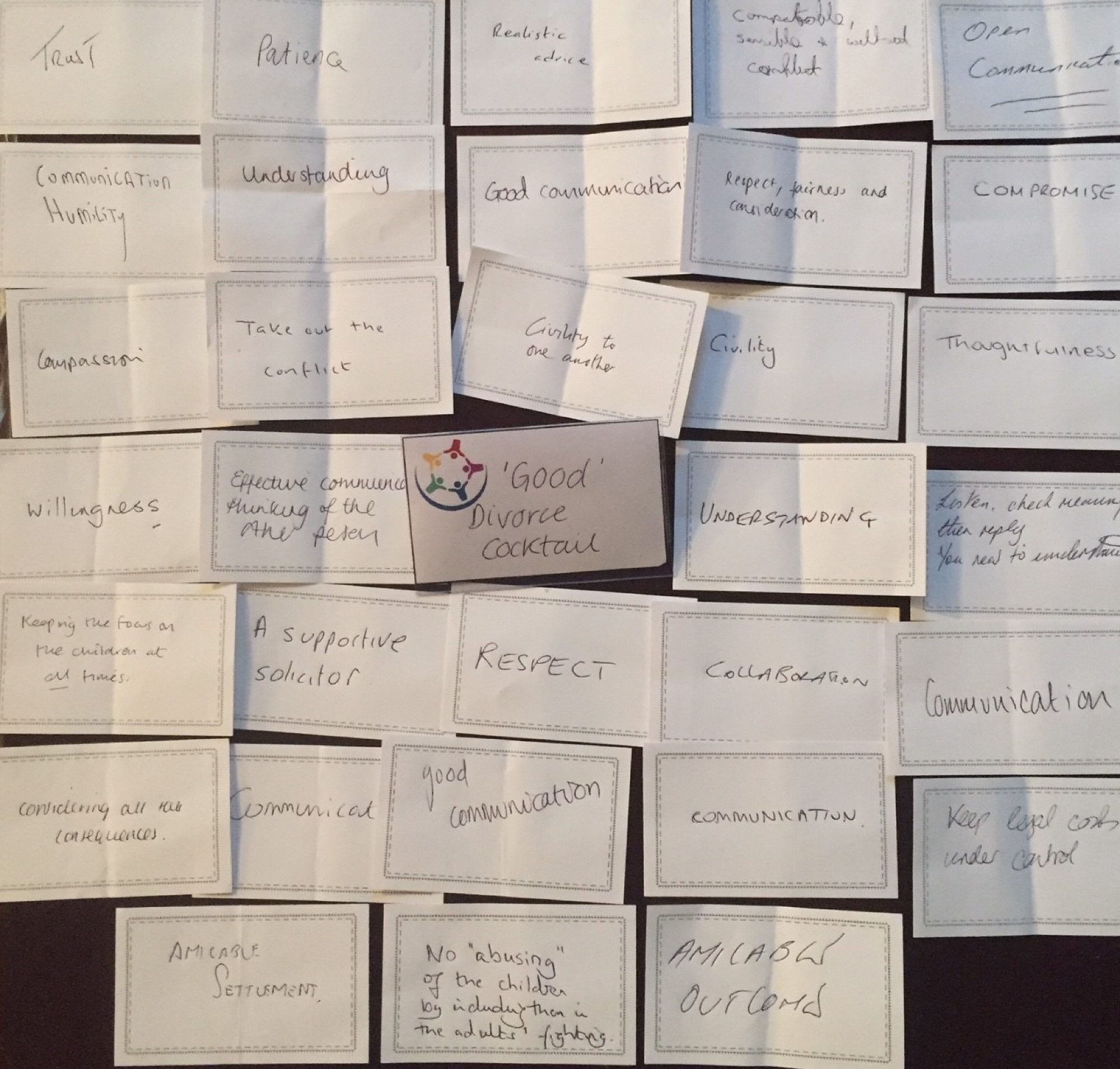One of the most common features of working with divorcing couples, is that of discussing, finding out and encouraging the importance of good listening.
Often, we hear people say that they are good listeners and friends and relatives who might be supporting you through this difficult process, perhaps will offer you their ear whenever you might need to offload or discuss issues that have arisen.
Conversations with your ex concerning the house, finance and most importantly the children are inevitable at some point.
These conversations arise at a time when emotionally, we are not best placed to hear what needs to be said.
Divorce can often result from a breakdown in communication that has been building for some time, coupled with other relationship difficulties.
Below are some tips to consider when communicating with your ex:
LISTEN:
- How do you know when someone is listening to you?
- How do you listen?
- What are the optimum conditions for you to listen fully?
- If you are upset, frustrated, or angry, your listening skills will be impaired.
- If you find yourself thinking about something else or how you might respond whilst others are still talking, you have stopped listening fully
- Try to keep your focus on what is being said
- Ensure that the time is convenient for you both to talk. If one of you needs to get away then your focus will not be on the present situation.
Once the other person has stopped talking.
CHECK:
- To make sure you have fully understood, e.g. “Ok so what I heard you say was……………”
- It is not unusual to miss important points during ‘emotional’ conversations, especially with your ex.
- Keep checking until you fully understand what has been said.
PAUSE:
- Take a moment to reflect on what’s been said.
- You might need more time, try not to feel pressured into making your reply immediately.
- Rearrange another time, convenient to you both to continue the conversation if you need more time.
Once you have considered your response
REPLY:
Try to
- Use ‘I’ Statements, e.g. “I think, I feel”
- Consider your ex’s position, put yourself in their shoes.
- Keep calm-it’s easy for things to escalate.
- Consider your children’s needs.
- Seek help if you are struggling. Consider a relationship therapist or mediator.
- Check that your ex has understood, “can you please repeat back what you’ve heard?”
Some final points to consider:
What you’re going through is tough. You will at times feel very emotional and having a rational, calm conversation with your ex is probably the last thing you want to do.
Remember, no one can be made to do anything that they don’t want to, try to offer suggestions rather than make demands.
Control ‘your end’ of the conversation (AND the behaviour that goes with it) and be the best listener you can be, for the sake of your children.

